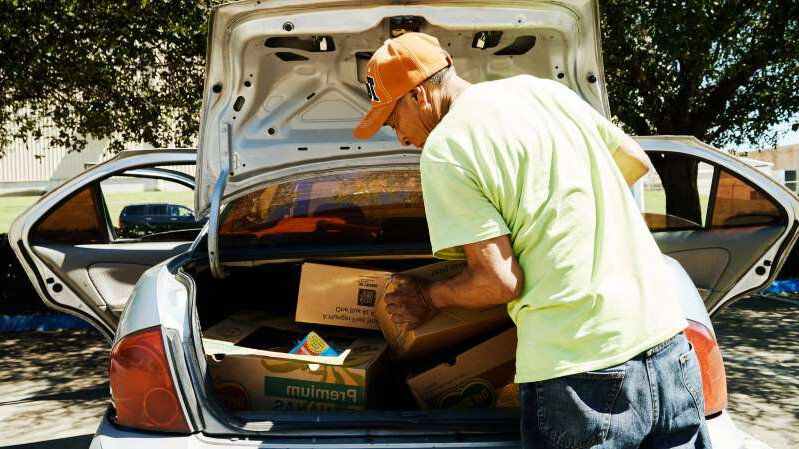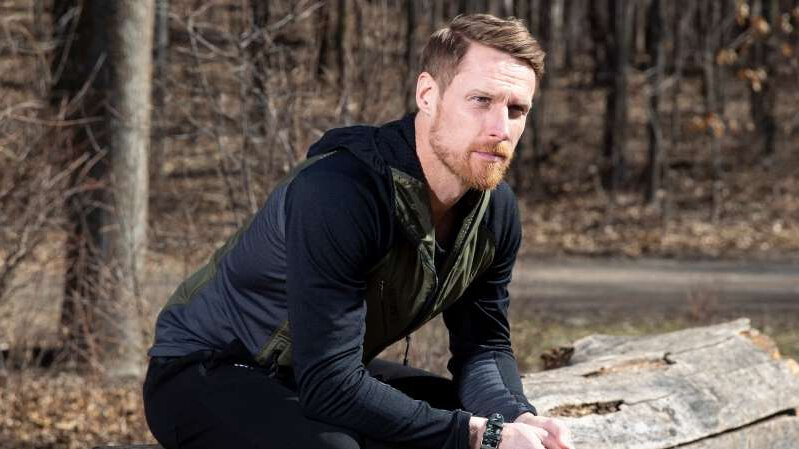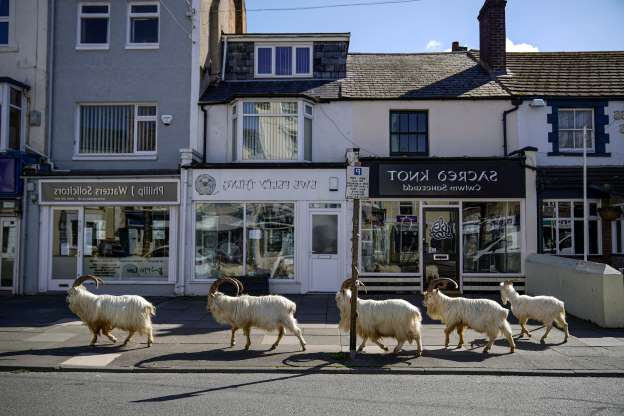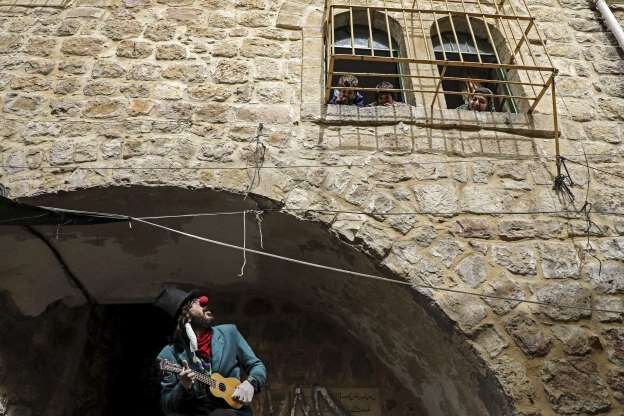This article originally appeared on PressFrom.
The cars arrived at the food bank in southern Dallas in a stream — a minivan, a Chevrolet Tahoe, a sedan with a busted window, a Jaguar of unclear vintage. Inside the vehicles sat people who scarcely could believe they needed to be there.
© Jonathan Zizzo for The New York Times A client at the Crossroads Community Services food bank in Dallas on March 24. Some 70 percent of people who arrived that day had never before been to the pantry.
There was a landscaper, a high school administrator, a college student, and Dalen Lacy, a warehouse worker and 7-Eleven clerk.
Like 70 percent of the people who showed up at Crossroads Community Services one day last week, Mr. Lacy had never been there before. But when the coronavirus pandemic drove the economy off a cliff, Mr. Lacy, 27 and a father of two, lost his warehouse job and saw his hours at 7-Eleven slashed.
“I’ve never had to actually do this,” Mr. Lacy said, after a gloved pantry worker hefted a box of food into the trunk of the car he was riding in along with two neighbors. “But I’ve got to do what I’ve got to do for my kids.”
By the hundreds of thousands, Americans are asking for help for the first time in their lives, from nail technicians in Los Angeles to airport workers in Fort Lauderdale, from bartenders in Phoenix to former reality show contestants in Minnesota. Biting back shame, and wondering guiltily about others in more dire straits, they are applying for unemployment, turning to GoFundMe, asking for money on Instagram, quietly accepting handouts from equally strapped co-workers, and showing up in unprecedented numbers at food banks, which in turn are struggling to meet soaring demand as volunteers, many of them retirees, stay home for safety.
© Jenn Ackerman for The New York Times Kirk DeWindt, a personal trainer in Minnesota who had to put his business on hiatus, hesitated to file for unemployment benefits because he has some savings: “I’m in a more privileged situation.” But he said he would apply.
David Greenfield, chief executive of Met Council, a nonprofit that provides food and housing assistance in New York City, said that at first, “we saw retail workers, chefs and waiters, and restaurant owners.”
By last week, he said, they were seeing employees from law firms: “Folks who in many cases were employed their entire lives.”
1/46 SLIDES © Christopher Furlong/Getty Images
The world is battling the COVID-19 outbreak that the World Health Organization declared a global pandemic, which has claimed more than 40,000 lives and infected more than 800,000 people around the world.
(Pictured) Mountain goats roam the streets of LLandudno on March 31, in Wales. The goats normally live on the rocky Great Orme but are occasional visitors to the seaside town, but a local Councillor told the BBC that the herd was drawn this time by the lack of people and tourists due to the COVID-19 outbreak and quarantine measures.
2/46 SLIDES © Hazem Bader/AFP/Getty Images
Palestinian artist Ameer Abu Ghalioon plays music dressed as a clown under the windows of Palestinian families keeping the confinement in the divided West bank town of Hebron on March 31, during the novel coronavirus pandemic crisis.




